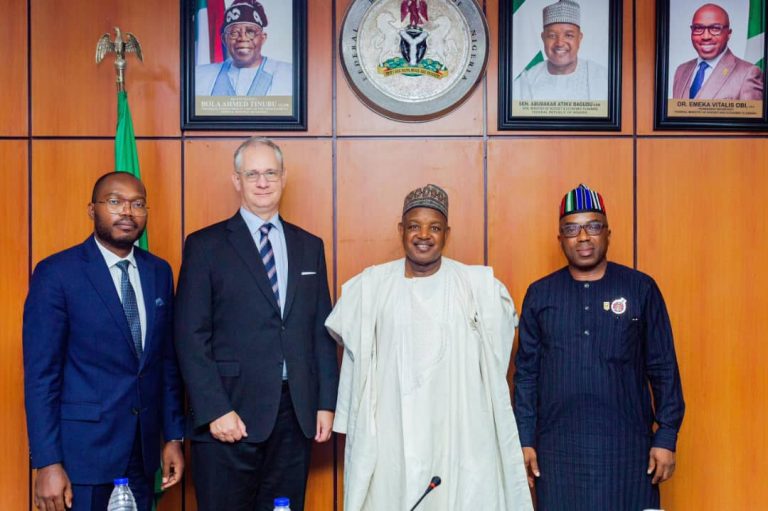From Isaac Anumihe, Abuja
The federal government is set to benefit from a $500 million loan facility from the World Bank for the Human Capital Opportunities for Prosperity and Equity (HOPE) project in the country.
The Minister of Budget and Economic Planning, Abubakar Atiku Bagudu, disclosed this during a courtesy visit by the International Monetary Fund (IMF) Mission Chief for Nigeria, Mr Axel Schimmelpfennig.
According to the minister, the loan facility will increase the availability and effectiveness of financing for basic education and primary healthcare across the various states of the federation.
The fund, he explained, will enhance transparency and accountability in basic education and primary healthcare while improving recruitment, deployment, and performance management of teachers.
While appreciating the World Bank’s support, Bagudu outlined that the Nigerian Constitution serves as the legal framework that provides the rules and procedures guiding the budget process. He added that it empowers the federal and state governments to make expenditures in the preceding year for the purpose of meeting necessary government services.
“This expenditure can continue for a period not exceeding six months or until the coming into operation of the law, as can be seen in Chapter 5, Part 2, Section 122 of the Nigerian Constitution,” he said.
Bagudu further explained that the reforms embarked on by Bola Ahmed Tinubu’s administration aim to develop and implement economic and tax reforms that will guarantee a more functional Public Financial Management (PFM) system in the country.
“The economic reforms are necessary decisions to put the Nigerian economy on the right track,” he stated.
He assured the IMF team that, despite challenges such as the hardship caused by the removal of the fuel subsidy, the floating of foreign exchange, and electricity reforms that have affected citizens in different ways, Nigeria is on course for economic recovery.
In a statement, the minister appreciated the IMF’s willingness to support Nigeria but called for additional support in resource mobilisation from multinational partners to enable the government to drive development across all sectors of the economy.
Earlier, the International Monetary Fund (IMF) Mission Chief for Nigeria, Mr Axel Schimmelpfennig, stated that his visit to Nigeria was to engage with the minister on the workings of the country’s budgeting process. He particularly focused on the simultaneous implementation of the 2023 and 2024 budgets, as well as the supplementary budgets for the same year, in preparation for the publication of the World Bank’s 2025 annual report.
Schimmelpfennig welcomed the federal government’s tax reforms, noting that increased revenue generation would ensure more development for Nigerian citizens. He also promised continued IMF support for Nigeria’s developmental needs.
The Permanent Secretary of the Ministry of Budget and Economic Planning, Dr Vitalis Emeka Obi, briefed the team on the ministry’s role in coordinating Nigeria’s development planning and budgeting processes. Dr Obi emphasised that 2025 promises to be a year of accelerated investments.
